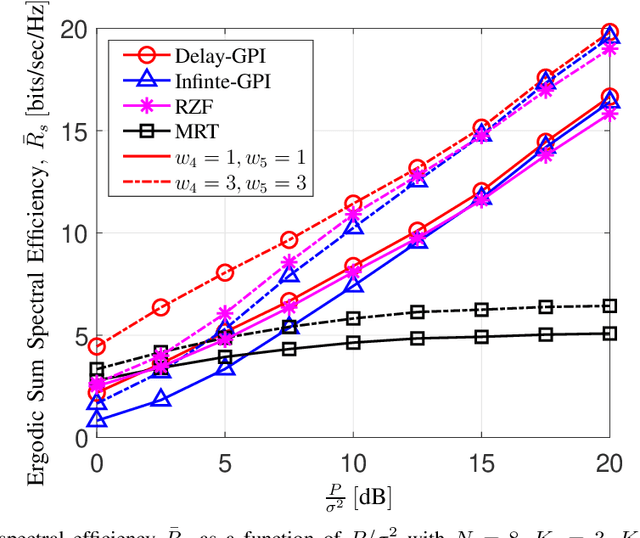Precoding Design for Multi-user MIMO Systems with Delay-Constrained and -Tolerant Users
Paper and Code
Jun 17, 2021



In both academia and industry, multi-user multiple-input multiple-output (MU-MIMO) techniques have shown enormous gains in spectral efficiency by exploiting spatial degrees of freedom. So far, an underlying assumption in most of the existing MU-MIMO design has been that all the users use infinite blocklength, so that they can achieve the Shannon capacity. This setup, however, is not suitable considering delay-constrained users whose blocklength tends to be finite. In this paper, we consider a heterogeneous setting in MU-MIMO systems where delay-constrained users and delay-tolerant users coexist, called a DCTU-MIMO network. To maximize the sum spectral efficiency in this system, we present the spectral efficiency for delay-tolerant users and provide a lower bound of the spectral efficiency for delay-constrained users. We consider an optimization problem that maximizes the sum spectral efficiency of delay-tolerant users while satisfying the latency constraint of delay-constrained users, and propose a generalized power iteration (GPI) precoding algorithm that finds a principal precoding vector. Furthermore, we extend a DCTU-MIMO network to the multiple time slots scenario and propose a recursive generalized power iteration precoding algorithm. In simulation results, we prove proposed methods outperform baseline schemes and present the effect of network parameters on the ergodic sum spectral efficiency.
 Add to Chrome
Add to Chrome Add to Firefox
Add to Firefox Add to Edge
Add to Edge